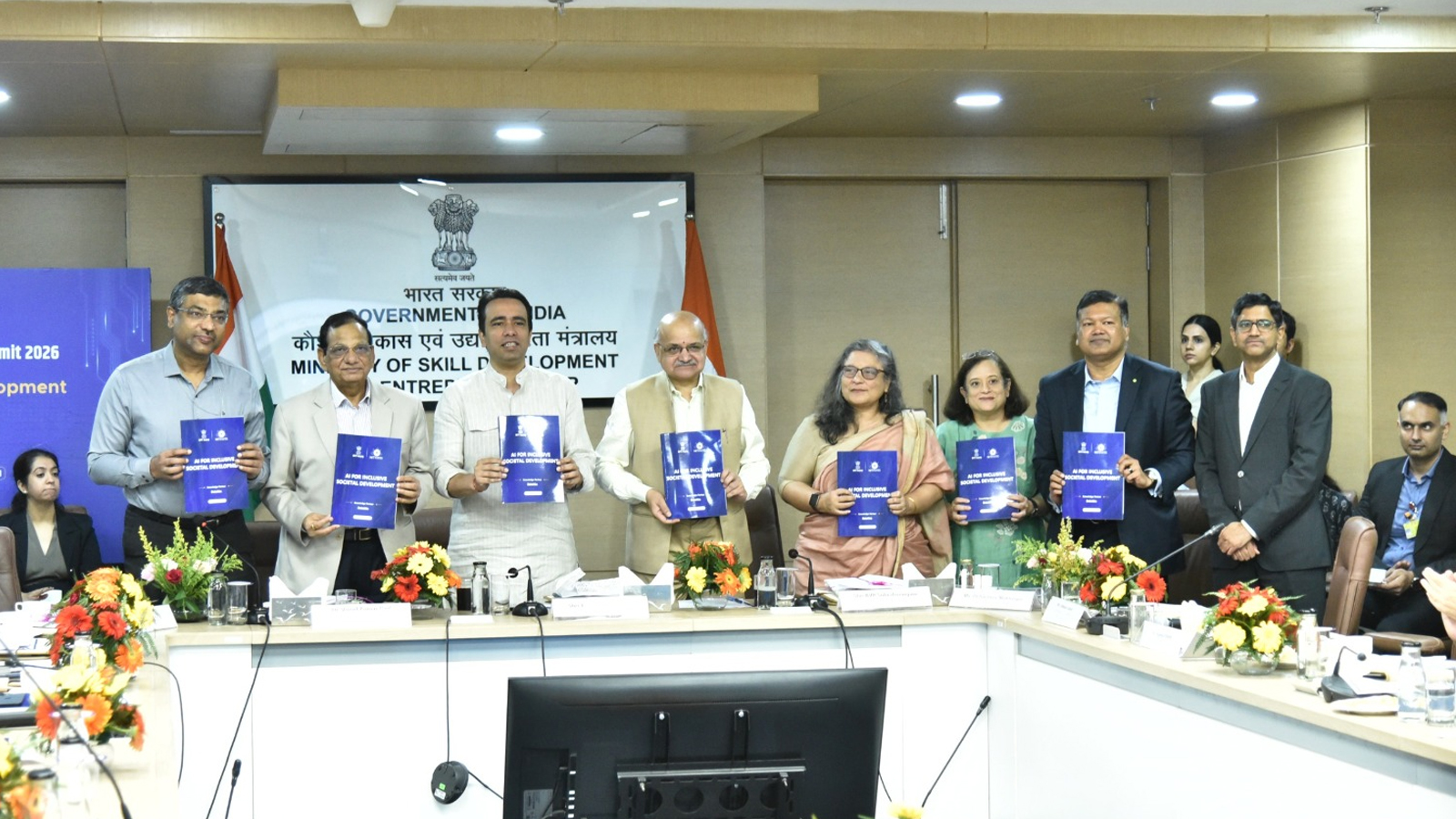NITI Aayog on Wednesday launched a pioneering roadmap titled AI for Inclusive Societal Development, a first-of-its-kind national effort to harness the power of artificial intelligence (AI) and frontier technologies to transform the lives and livelihoods of India’s 490 million informal workers.
The report, developed in partnership with Deloitte, marks a major shift in the national AI conversation. While global discourse has often focused on white-collar jobs and the formal economy, this study centers the informal sector — which contributes nearly half of India’s GDP but remains outside formal protection and productivity systems.
Launching the roadmap, Minister of State (Independent Charge) for Skill Development & Entrepreneurship and Minister of State for Education Jayant Chaudhary said, “Empowering India’s informal workers is not just an economic priority, it is a moral imperative. By leveraging AI and frontier technologies, this mission will ensure that every worker—whether a farmer, artisan, or healthcare aide—has the skills, tools, and opportunities needed to thrive in the digital economy of tomorrow.”
At the heart of the strategy is the proposed Mission Digital ShramSetu, a national mission to make AI accessible, affordable, and impactful for every informal worker. The initiative aims to use AI, blockchain, immersive learning, and other emerging technologies to tackle barriers such as financial insecurity, limited market access, and lack of skills and social protection.
B. V. R. Subrahmanyam, CEO of NITI Aayog, stressed the critical role of partnerships: “If we are serious about transforming the lives of India’s 490 million informal workers, collaboration is not optional—it is non-negotiable. Only by uniting government, industry, academia, and civil society can we ensure real, lasting empowerment.”
Debjani Ghosh, Distinguished Fellow at NITI Aayog and Chief Architect of the Frontier Tech Hub, highlighted that achieving the $30 trillion Viksit Bharat 2047 vision depends on empowering the informal sector. “AI won’t transform their lives on its own. This roadmap puts their voices, challenges, and aspirations at the centre of the AI conversation,” she said.
The study warns that without immediate, coordinated action, informal workers’ average annual income could stagnate at $6,000 by 2047—far below the $14,500 per capita target required for India to achieve high-income nation status.
The roadmap was launched in the presence of Jayant Chaudhary; V. K. Paul, Member of NITI Aayog; B.V.R. Subrahmanyam, CEO, NITI Aayog; S. Krishnan, Secretary, Ministry of Electronics and Information Technology; Debashree Mukherjee, Secretary, Ministry of Skill Development and Entrepreneurship; and Debjani Ghosh, among other dignitaries.
The launch event saw strong participation from industry and development partners including Confederation of Indian Industry, NASSCOM Foundation, World Bank, Bill & Melinda Gates Foundation, Sattva Consulting, Haqdarshak, and Piramal Foundation.
The roadmap is available on NITI Aayog’s website.










